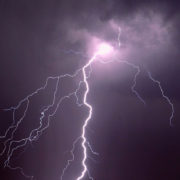Buying Your First Home: 3 Buying Myths Debunked
It’s a seller’s market, yet here in Tampa the homes are in demand and aren’t lasting too quick. Buying your first home can be a big challenge, filled with unfamiliar ground. Here are 3 buying myths debunked as you move into buying your first home.
Looking first is the wrong first step
Most first time home buyers start with looking at homes. This could include driving around neighborhoods or searching online. But if you’re serious about buying your first home, your first step should be getting qualified for a mortgage.
If you fall in love with a house and have no idea if you can afford it then you may be setting yourself up for heartbreak. With online services like Lending Tree, you don’t even have to walk into a bank to find out if you can qualify for a home loan. Start with the loan then proceed with the looking. Wit your finances in place, it also means if you do find a home you love you don’t have to hesitate in making an offer.
Your down payment can vary depending on your lender
Most buyers have the misconception that you have to put 20% down as a down payment. Traditional loans have always required a minimum 20% down payment. However, many loans now offer a variety of down payment options.
Some lenders also offer incentives or programs that will reduce your down payment percentage, or not even require a down payment. Some programs also cater to veterans, military, or other eligibility requirements.
An appraisal and a home inspection are two very different things
If you’re buying your first home then you might confuse a home appraisal and a home inspection. A home inspection is paid out of the buyer’s own pocket. Most lenders require will require a home inspection before you purchase the home so the inspector can identify any issues or concerns you need to be aware of before completing the purchase.
A home appraisal is for the bank to determine how risky of an investment the bank is making by allowing you to buy the home. An appraiser will spend 5 – 15 minutes in your home, as opposed to a home inspector who will spend 3 – 4 hours. The appraiser will determine the overall value of the home.
Don’t forget to call Divinity Inspection Service when you are ready to schedule your home inspection! One of the worst mistakes you can make is completing your home purchase without a home inspection first.






